Stories being the best teacher, within a few days of arriving in Tangier, I set out on a quest to uncover the everyday struggles and joys of a single Tanjawi, a local who could give me access to a culture I was determined to understand. My quest led me to Abdul.
I met Abdul when a small group of friends and I got lost in the labyrinth of the fabled Medina. A middle-aged man, sensing our bewilderment, offered to guide us to the “best shop in the Medina, with the lowest prices.” Wanting nothing more than such an adventure, we followed him deep into a warren of streets, turning down colorful alleyways and passing mysterious corridors. Eventually, we arrived at Abdul’s shop, the Narnia of the Medina.
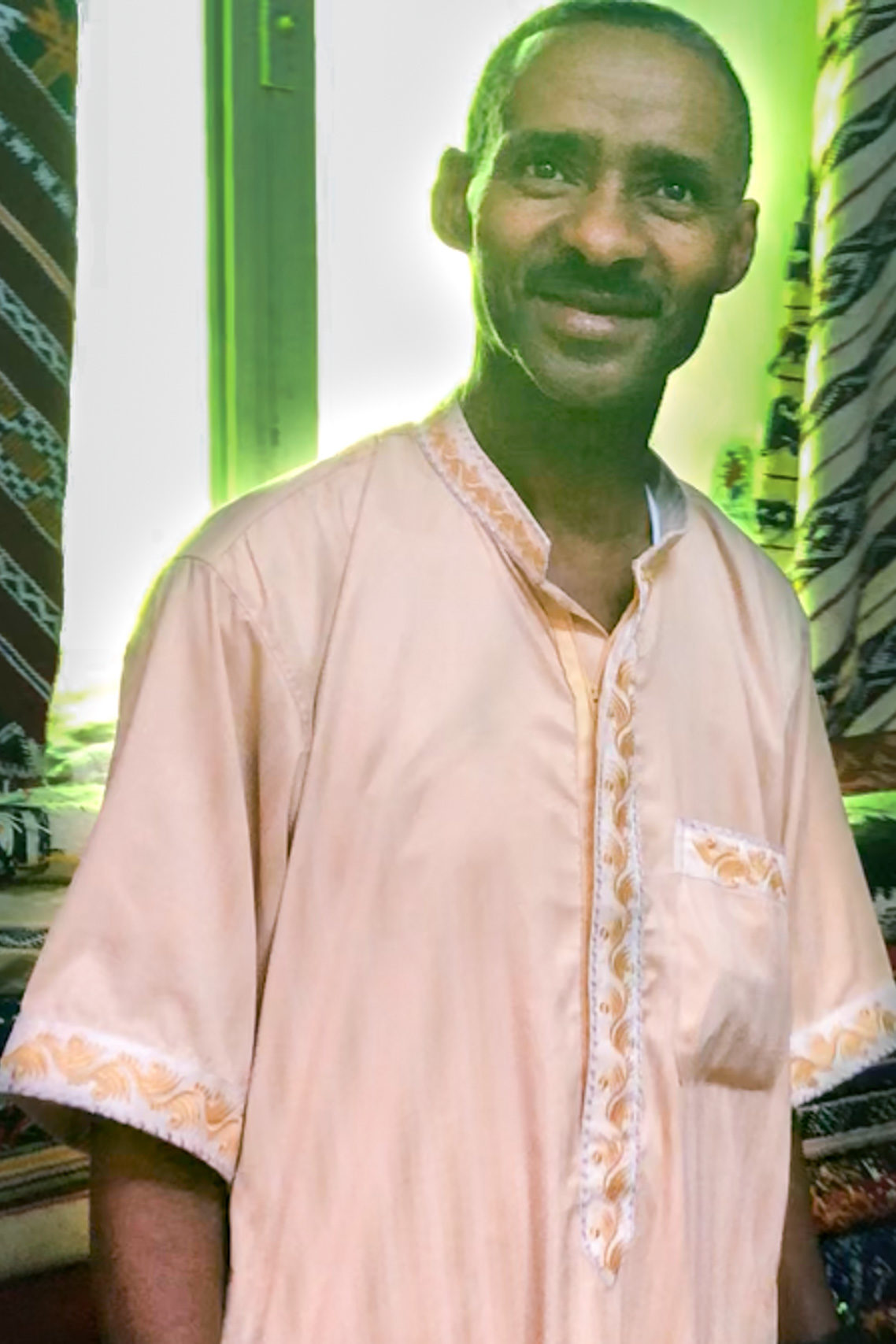
A small entrance led into a three-story shop with merchandise and trinkets stacked up along the fifteen-foot walls and hanging from the ceiling. Inside, sat Abdul Malik. Abdul at once offered us mint tea, gave us a place to sit, and began to show off his wares, enticing us to buy something. While we did not buy anything, he put on such a show, like an actor on a stage, that I promised him I would return.
A week later, he again greeted us with his warm smile and a cup of boiling mint tea. Leaving his shop, I couldn’t get my mind off Abdul. He seemed so happy and treated everyone with such kindness. What’s his story? I wondered. Does his small shop earn him enough to make ends meet? Does he hide his troubles behind a mask of smiles and offers of mint tea? Is he resentful of people like me, able to come visit from a foreign land? I knew I had to return to get his story.
When later I made my way back to the Medina, doubts began to spring up in my mind. Will he even be there? Will he trust me enough to answer my questions?
I continued in silence heading down to Abdul’s shop. I turned to enter the shop and to my surprise, Abdul was standing right in the doorway.
“Hello, Abdul! Remember me?”
“Yes, yes, Jack my brother, of course. Come on in. You want tea?”
Once inside his shop, I asked if I could interview him about his life. Without hesitation, he complied with a smile. “You are my friend, ask me anything. I answer . . . but ask questions slowly. I speak English but not as good as you.” He pulled up a stool for me and told me he would be with me in a few minutes. He had to prepare the mint tea and help some other customers.
Sitting on the stool, I admired the way Abdul danced around the English-speaking tourists, showing off his wares just as he had done for me and my friends. After a few minutes of theatrics, he sat down next to me ready for my questions.
Pulling up my recording device, I hit play and asked my first question. “Where were you born?” Leaning in close to my phone, he began to take me through his youth. With his broken English, he told me this: Abdul Malik was born in 1960 in a Berber village in the desert, near the town of Ouarzazate. With great pride in his voice, he made sure I knew that the Berbers were the first Moroccans. Growing up, he was often on the sets of Hollywood movies, as his father worked for film crews when they would come to his village.
He lacked proper schooling, but because he was around so many foreign film companies, he picked up languages. “People came and spoke French, German, Spanish, and English. I listened and I learned. “When I was young,” he continued, “the foreigners told me, ‘Sit down, don’t move from here, your Coca-Cola is coming.’ I love Coca-Cola, and in the desert, we don’t have Coca-Cola. They would pay my father 300…400 dollars, that was big money.”
Nodding, I sat there on my stool transfixed.
He next told me that when he was twenty-four he was married off by his parents to a girl he had never met. They told him he would be married on the weekend, with a honeymoon set for the following Friday. Abdul now lives with his wife of thirty-four years and has six children. After all these years, it also seemed that he was content with his arranged marriage. Or so I thought.
I also assumed I’d get the juicy bits of his life by asking about business. “Is it difficult to live here? Do you and people here struggle?” His answer surprised me.
“No, no, no,” he repeated several times. “It is easy: you can rent a house, you can buy a house, it’s no problem. If you want to marry Moroccan women, you can do that too.” He explained that in the desert it is still common for the parents to find a suitor for their son or daughter, but here in the north, “love is free.”
“Do you make good business here?” I repeated.
“We live, we live. Better than nothing. Life is normal, not down, not up. Because Morocco is cheap, 500 or 600 euros a month you live good.”
Maybe I have this all wrong, I thought. I had expected him to come out with complaints about poverty and hardships. Instead, it felt like he was teaching me from a father’s point of view. Wherever you are, he was saying, you can make a living, marry a girl and start a life.
“So what makes you happy?” I wanted to know. It certainly wasn’t material wealth.
“Excuse me,” his tone lowered. “If you want to be happy, you have to do good by everybody.”
“Do you mean, be nice to everybody?”
“Ahh yes, now we are getting somewhere,” his eyebrows rose. “You have to be nice to everybody because if you do good, everybody says you are good, and if you do bad, everybody says you are bad. There is bad and good everywhere, you know, so you must do good and that’s it.” He looked up and smiled. “No matter if people buy or don’t buy here, I will always be nice because it’s the right thing to do.”
His sense of morality was what struck me. Was that what made him such a happy man?
Switching gears, I asked him if he had ever left the country.
“No.”
“So, if you could go anywhere in the world, where would you go?”
“I want to visit America, to know what is happening there. I would love to go to Boston.”
I told him I lived near Boston, and he laughed, giving me a slap on the arm. But then his voice lowered and his smile faded. “But it is very expensive. I have no money to go there. But if surprise comes to me, I go.”
“Why Boston?” I asked. After all, he had the whole world to choose from.
“I tell you the truth, ok? You are my friend.” He paused. I waited, respecting his shift in tone. He then told me the story of Katy, an American student who visited Tangier in 1981. At the time he worked at a shop in a different part of the Medina. One day, a small group of students entered his shop. Among the group was a girl with a big pile of frizzy hair and Levis who had a fixation on Abdul, always keeping him in sight. He approached her and asked, “May I help you?”
“Yes, yes,” she eagerly replied. Abdul helped her find some souvenirs, and then she asked him where he was from, just as I had. He told her his story, and after patiently waiting, she asked him, “Would you like to go to America?”
Taken aback, Abdul asked, “Why?”
“I would like to take you back to meet my family.”
“What for?”
“I like you.”
“What you like about me? You don’t know me, we just met fifteen minutes ago. How do you like me so much? You’ve never seen me in my life.” In recounting this story that took place long before I was born, I noticed in his voice a deep passion as if he was reliving the past.
Katy’s mouth drew a warm smile. “I like how you treat people. You are very fine, very funny, always smiling. I’m looking for a man like you.”
“How old are you?”
“18.”
“Look… you are young and you are nuts, don’t put yourself in a situation like this.”
She persisted, telling him she studies people and she could see he was good, repeating that she would like to take him home to America. Taking on a more serious tone, he told her to stop being so crazy. She didn’t know about Morocco and how hard it was to leave.
“You can’t take me to America,” he said. “I cannot leave, I have to get all these papers and it is impossible.”
Conceding a little, she replied, “Don’t worry, I’ll come back, I will see you again.” She gave him her address and telephone number. When she turned and told her group she wanted to take him back to America, they gave her a round of applause.
Sighing, Abdul told me, “They didn’t know about Morocco, those Americans.”
But the story continued, I quickly learned.
Three months later, Katy returned with her family. He was working at a new place then, and she searched for two days to track him down. With excitement, Katy introduced Abdul to her family. Nearly in shock, Abdul said he could not believe she had found him, and that she brought her family. She offered him the same proposition as she had three months earlier.
Immediately he turned to her parents. “Sir, Madam, your daughter is crazy, but come in and have some tea.” And due to his kind nature, he invited her family over to his mother’s house for a traditional Moroccan dinner.
Adding to the surprise, her father approached him after dinner. “We would like to take you home with us to America. I only met you today but you seem like a good man. I am serious. You can live with us at my house.”
He was being offered the golden ticket to find a better life in America. But he couldn’t bring himself to muster a Yes. Thoughts of his family invaded his mind. Humbled, Abdul thanked him for his offer, told him it made him happy, but said he still could not go to America.
“We can go to the American consulate together,” said the father. “I can help you, we can go now.” Still refusing, Katy’s father then offered to pay for Katy to stay with him in his house in Morocco for one month, which further bewildered Abdul.
But still, Abdul refused. He refused because he had a responsibility to his mother, as he is the youngest of six children. The responsibility fell to him and he could not leave her to take care of herself.
Accepting that Abdul was not going to go back with him, the father pulled him aside and offered him money. “How much you want? I know you are poor, I want to help you, I know your life, I know your house, I know everything.”
Firmly, Abdul refused and her father pressed on. “Why won’t you accept my money?”
Abdul then paused his story and looked directly at me. “I said no because of what my father always told me . . . He told me, ‘Please, Abdul, don’t follow the money, don’t follow the money. If you follow the money, you die quickly and you will forget yourself . . . Money will never bring happiness.”
And that’s what Abdul told Katy’s father. Later, after Katy’s family left, Abdul found thousands of dollars hidden in the couch.
“That is why I would like to visit Boston,” Abdul concluded. He wanted to see Katy and her family, after all these years.
I sat with Abdul for around forty-five minutes, focusing on his emotions as much as his words. Going into the interview, I had assumed he’d tell me how hard life was here, that he didn’t make enough to feed his family and that he had to work his ass off to just get by, but instead, he told me that life was fine.
His eyes told a different story. After all these years he still thinks about the chance he had to leave, the chance he threw away. He is fifty-eight and has never set foot outside Morocco. Still, there is something he has that most of us don’t. More than money, he values kindness. He lives in a world where tradition, family, and morals matter the most. Which is something I have never found in the suburbs of a wealthy New Jersey town. Abdul opened my eyes to a world below the surface of money and outward success. I went searching for a story, and I ended up learning from a poor man’s wisdom.
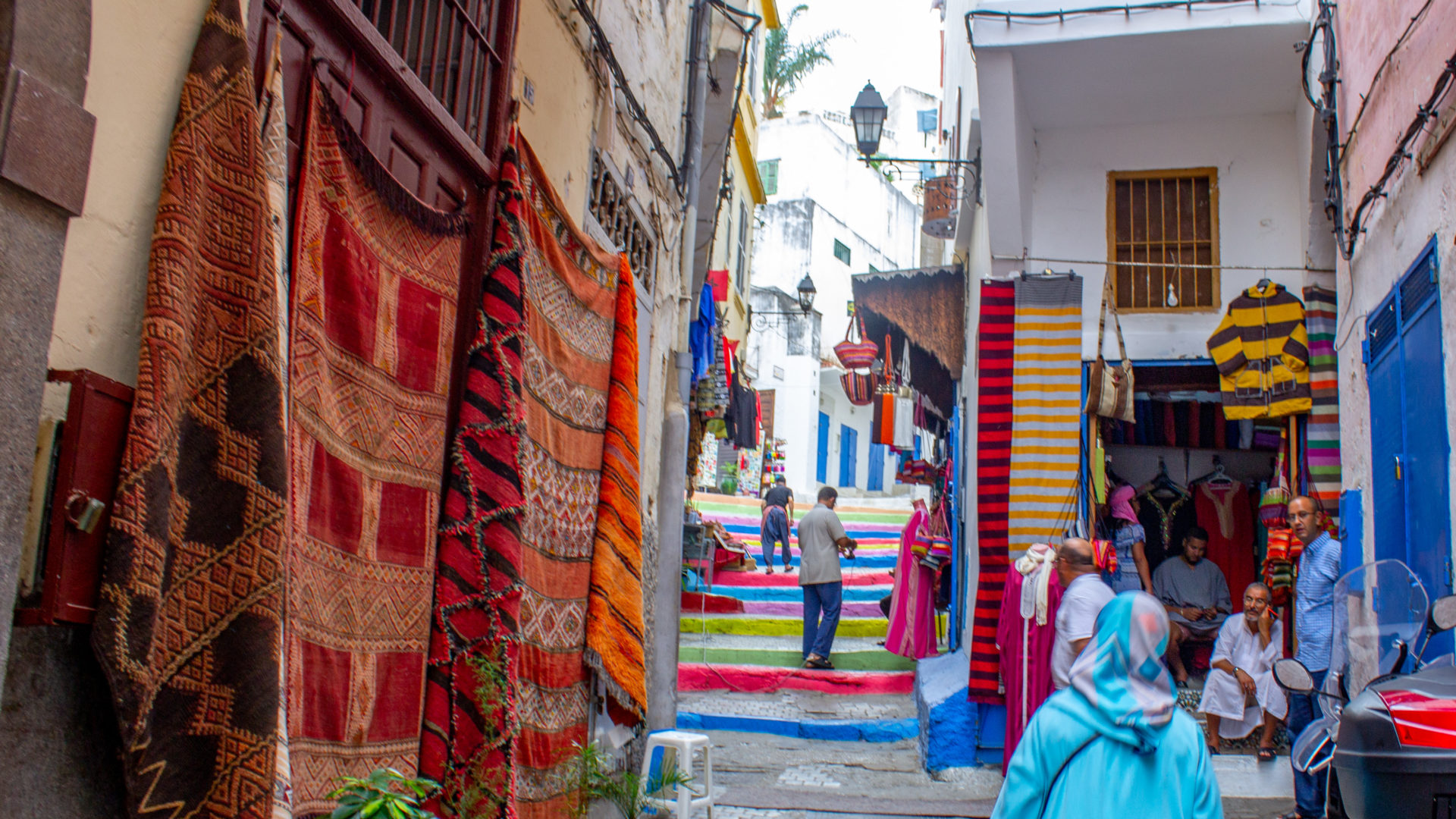
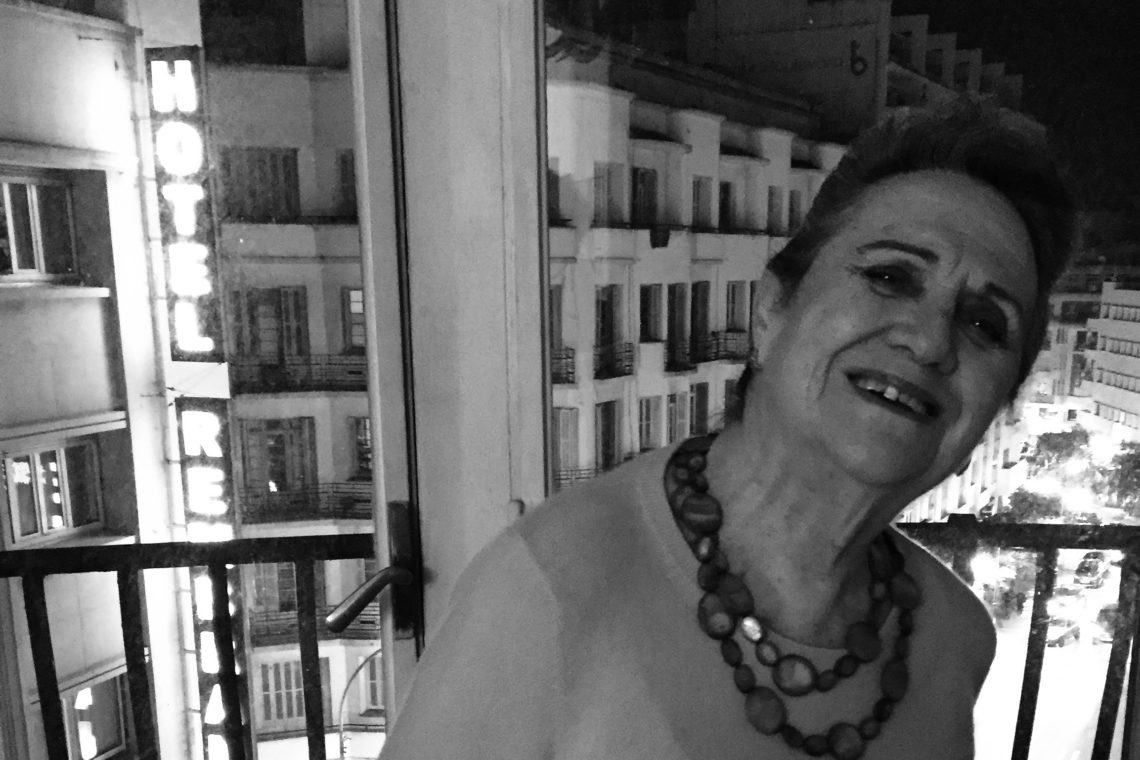
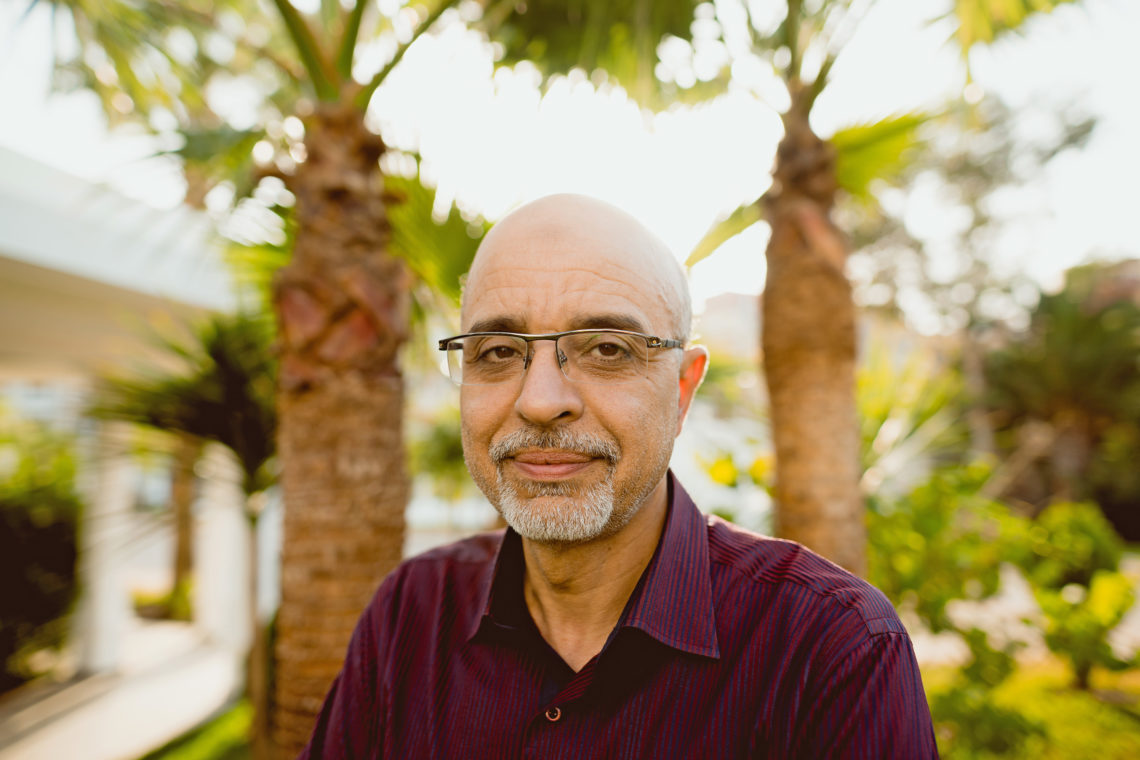
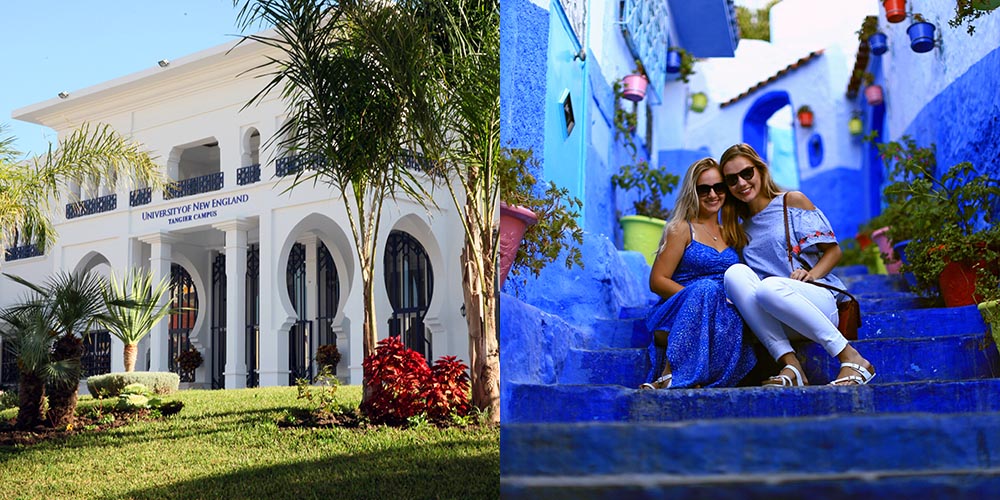

Comments are moderated by the editor and may not appear on this discussion until they have been reviewed and deemed appropriate for posting. All information collected is handled in a manner consistent with our privacy policy.